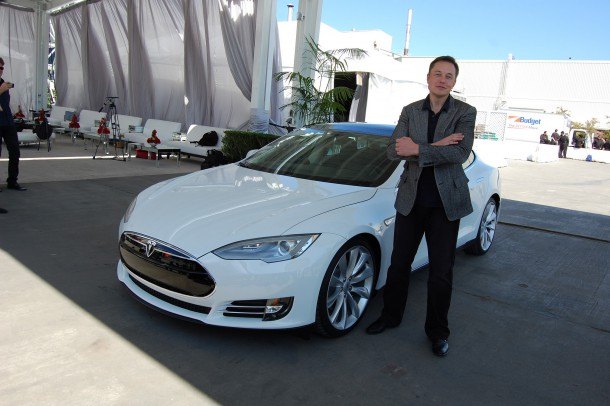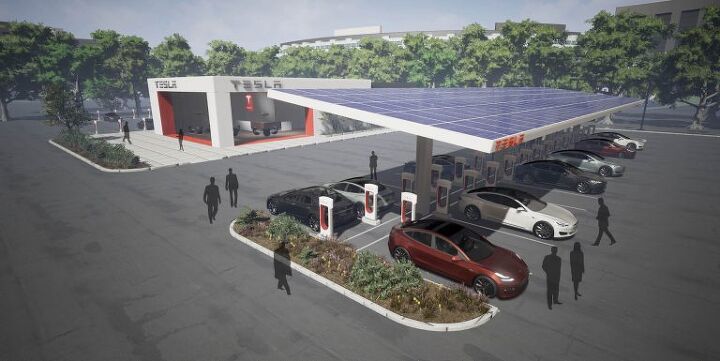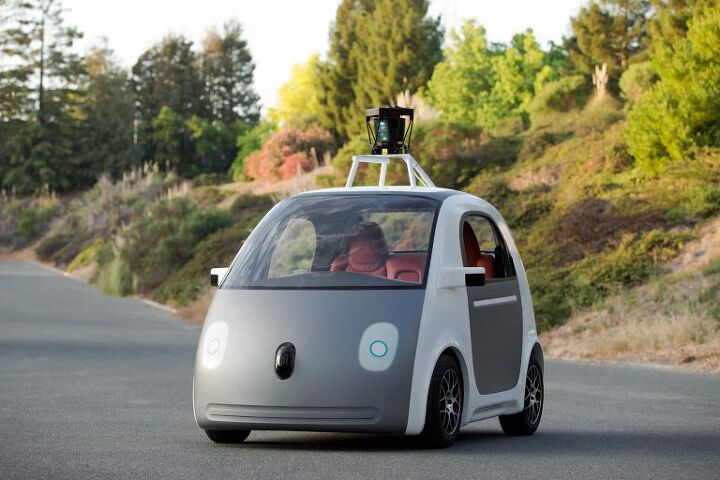#SiliconValley
Elon Musk: I'm Not Sure What *You* Think 'Pedo' Means, But…
Man, it never ends. Removed from the many, many issues at play both inside and outside Tesla’s Palo Alto HQ, a lawsuit sparked by a childish spat between Tesla CEO Elon Musk and a British cave diver still hangs over Musk’s head.
If you don’t recall the ridiculous episode, Vernon Unsworth, who was instrumental in organizing the successful rescue of a Thai soccer team last summer, told Musk to shove his experimental, homemade submarine up his ass. Musk responded by referring to him as “pedo guy”on Twitter.
On Monday, Musk sought to have the defamation suit tossed out on the grounds that “pedo” could mean a lot of things. This is 2019, people, and it’s Silicon Valley.
No Fixed Abode: Guess You Won't Be Superchargin' After All, Pal
I didn’t learn about the “California No” until I started writing about cars. I was raised on the East Coast, where people have no trouble saying “No” whatsoever. There’s even a song about it. In Ohio, people might be apologetic about it but they will still forthrightly tell you, “I’m sorry, I’m not going to buy from you,” or “I don’t want to meet with you about that.”
That’s not how California works. The so-called “California No” is simply a drawn-out pas de deux in which someone avoids responding directly to your question because they are unwilling to directly refuse or reject you. Supposedly, the California No and the Asian No are related. I couldn’t say. All I can tell you is that I have zero patience for the California No, particularly when it comes from people working in the automotive PR or journalism “spaces,” and I will make attempts to California-No me as uncomfortable as humanly possible, without exception.
To this fine Golden State institution, you can now add the related “California Prohibit,” which is best exemplified by Tesla’s new directive regarding “commercial” use of its Supercharger facilities.
Silicon Valley Discovers 'Making a Car is Hard'
Every now and then, a critical mass of clever, ambitious folks excited about a particularly good idea coalesces, often in a particular geographic region, and humanity gets lucky. The American colonies in the late 18th century and Detroit in the early 20th century are historical examples. Silicon Valley, starting in the 1980s, is probably our best contemporary example.
In recent years, those modern titans of technology have turned their futurist eyes towards personal transportation. Whether explicitly or in sotto voce tones, they’ve indicated that the traditional auto industry personified as “Detroit” was a dinosaur about to go extinct. Not knowing the auto industry metaphor of becoming an obsolete buggy whip manufacturer, the tech industry saw Detroit’s future as “making handsets” — i.e. low tech assemblers.
Tesla was going to show us the new electron driven future, Google was going to make cars that drove themselves, and the Apple of the tech world’s eye was going to do nothing less than completely reinvent the automobile, just as it had done with music players and telephones. The push towards self-driving, autonomous cars and trucks was only going to accelerate the ascendancy of Silicon Valley as the new Motor City.
Just because you’re good at one thing, however, doesn’t mean you’re good at another.
Daimler CEO: Google, Apple Further Along With Car Projects
Daimler CEO Dieter Zetsche said a recent trip to Silicon Valley revealed that tech companies such as Google and Apple were making significant progress on autonomous cars, German newspaper Welt am Sonntag reported ( via Reuters).
“Our impression was that these companies can do more and know more than we had previously assumed. At the same time they have more respect for our achievements than we thought,” Zetsche said, according to the report.
Zetsche said he and other managers from the automaker met with tech companies in Silicon Valley, but didn’t disclose what those companies were.
Henry Blodget: Apple Won't Be the Next Porsche
Henry Blodget publishes Business Insider. Blodget is a former managing director of Merrill Lynch who rose to fame in the late 1990s on his timely and correct prediction that Amazon stock would reach $400, then lost his $12 million/year job following the burst of the dot.com bubble, and then was permanently barred by the Securities and Exchange Commission over fraud allegations*. Blodget still has outstanding sources and contacts within the tech sector. In a post at his website, Blodget discusses the current excitement about tech companies like Google and Apple exploring automotive ventures, which some say are aiming at becoming the next Dr. Ing. h.c. F. Porsche AG. Not only does he say that the tech sector is cyclical, that the current bubble will also eventually burst and that Apple’s outsized success with their smartphones has been anomalous even for that now routinely successful firm, he makes some sound arguments the next Porsche AG is not likely to come from the Silicon Valley.
Future Of Auto Industry Linked To Silicon Valley
As companies like Google, Tesla and Uber seek to reshape the auto industry in their own ways, more automakers and suppliers are beating a path toward Silicon Valley and the Center for Automotive Research Stanford to help adapt to the new reality.
Future Of Industry, Mobility To Be Shaped At Detroit Tech Conference
Part of the automobile’s future may be linked to concerns of safety, fuel efficiency and the environment, but connected- and autonomous-vehicle technologies, among other disruptors, look to flip the table on the century-old game as the 21st World Congress on Intelligent Transport Systems gets underway this week in Detroit.
Aptera Founders Ousted In EV Startup Rite Of Passage
Wired has some fantastic coverage of Aptera’s coming-of-age struggles, which have been come to a head since the firm received permission to tap the federal ATVM loan program, the most important rite of passage for boutique EV startups. In short, the auto industry insiders led by Paul Wilbur, formerly of Ford and Chrysler, were delaying production for reasons that made little sense to the firm’s founders. One passage by Wilbur poignantly indicates the nature of the rift:
For months we have been receiving important feedback from you, our depositor community, and we have come to realize there were flaws in our initial product assumptions — specifically as it pertains to satisfying the needs of real-world consumers. Our greatest degree of learning came just a few months ago when we asked all of you to participate in a brief survey. This critical piece of research requested insights about your expectations for our company and our products, and we discovered a notable disconnect between our product plan and realistic expectations. Some modifications had to be made. For example, you helped us realize that some trade-offs for convenience (like being able to grab a burger in a drive-thru) might be necessary to make the ownership experience more palatable, even if it cost us a couple tenths of a point on our drag coefficient.





















Recent Comments